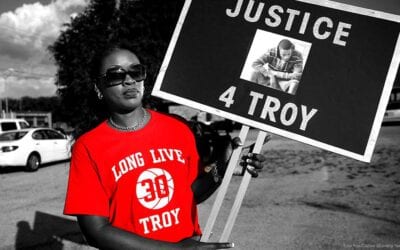Is it possible to either get off probation early or have it reduced?
The short answer is, yes, it is possible; however, it is not mandatory and/or guaranteed. Let me explain. Section 20 of Article 42.12 of the Texas Code of Criminal Procedure (entire section below) states that once a probationer has SATISFACTORILY completed one-third of the original community supervision period or two years of community supervision, whichever is less, their period of community supervision MAY BE reduced or terminated by the judge. However, the language of the statute is clear that the determination whether your probation will be reduced or terminated is completely discretionary, and ultimately left up to the judge.
So how you can put yourself in the best position to have your probation either terminated or reduced? For starters, and perhaps the most obvious, you cannot be arrested and/or charged with any new offenses (greater than a traffic offense) while currently on probation. Secondly, you have to meet the time requirement of completing at
least one-third of the original probation or two years of community supervision, whichever is less. For example, if you were given a 3 year probation then you would have to satisfactorily complete a minimum 1 year or if you were given 7 years you would have to complete 2 years. Thirdly, you would need to have completed any and all programs and court-ordered counseling and/or treatments, as well as, all community service hours. And finally, any
 required restitution, fines, costs, and/or fees would need to be paid. Please note, in addition to all state jail felonies, most alcohol related and sex offenses are not eligible for early termination or reduction.
required restitution, fines, costs, and/or fees would need to be paid. Please note, in addition to all state jail felonies, most alcohol related and sex offenses are not eligible for early termination or reduction.
Questions regarding probation or need a free criminal defense consultation? Visit igotcharged.com and /or call (972) 921-6096.
– Kobby Warren, Warren-Healy Law Firm
Article 42.12 of the Texas Code of Criminal Procedure
Reduction or Termination of Community Supervision
Sec. 20. (a) At any time after the defendant has satisfactorily completed one-third of the original community supervision period or two years of community supervision, whichever is less, the period of community supervision may be reduced or terminated by the judge. On completion of one-half of the original community supervision period or two years of community supervision, whichever is more, the judge shall review the defendant’s record and consider whether to reduce or terminate the period of community supervision, unless the defendant is delinquent in paying required restitution, fines, costs, or fees that the defendant has the ability to pay or the defendant has not completed court-ordered counseling or treatment. Before reducing or terminating a period of community supervision or conducting a review under this section, the judge shall notify the attorney representing the state and the defendant or, if the defendant has an attorney, the defendant’s attorney. If the judge determines that the defendant has failed to satisfactorily fulfill the conditions of community supervision, the judge shall advise the defendant in writing of the requirements for satisfactorily fulfilling those conditions. Upon the satisfactory fulfillment of the conditions of community supervision, and the expiration of the period of community supervision, the judge, by order duly entered, shall amend or modify the original sentence imposed, if necessary, to conform to the community supervision period and shall discharge the defendant. If the judge discharges the defendant under this section, the judge may set aside the verdict or permit the defendant to withdraw the defendant’s plea, and shall dismiss the accusation, complaint, information or indictment against the defendant, who shall thereafter be released from all penalties and disabilities resulting from the offense or crime of which the defendant has been convicted or to which the defendant has pleaded guilty, except that:
(1) proof of the conviction or plea of guilty shall be made known to the judge should the defendant again be convicted of any criminal offense; and
(2) if the defendant is an applicant for a license or is a licensee under Chapter 42, Human Resources Code, the Health and Human Services Commission may consider the fact that the defendant previously has received community supervision under this article in issuing, renewing, denying, or revoking a license under that chapter.
(b) This section does not apply to a defendant convicted of an offense under Sections 49.04 – 49.08, Penal Code , a defendant convicted of an offense for which on conviction registration as a sex offender is required under Chapter 62, or a defendant convicted of a felony described.





0 Comments